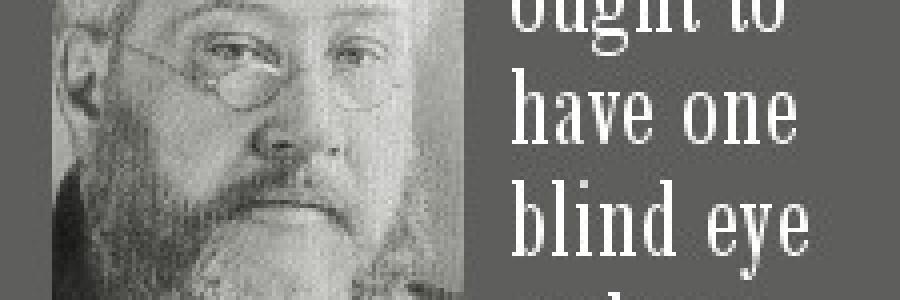The Blind Eye and the Deaf Ear (Part 2)
This post continues a lecture from C.H. Spurgeon’s Lectures to My Students (read the series so far).
I should recommend the use of the same faculty, or want of faculty, with regard to finance in the matter of your own salary.
There are some occasions, especially in raising a new church, when you may have no deacon who is qualified to manage that department, and, therefore, you may feel called upon to undertake it yourselves. In such a case you are not to be censured, you ought even to be commended. Many a time also the work would come to an end altogether if the preacher did not act as his own deacon, and find supplies both temporal and spiritual by his own exertions. To these exceptional cases I have nothing to say but that I admire the struggling worker and deeply sympathize with him, for he is overweighted, and is apt to be a less successful soldier for his Lord because he is entangled with the affairs of this life.


Discussion